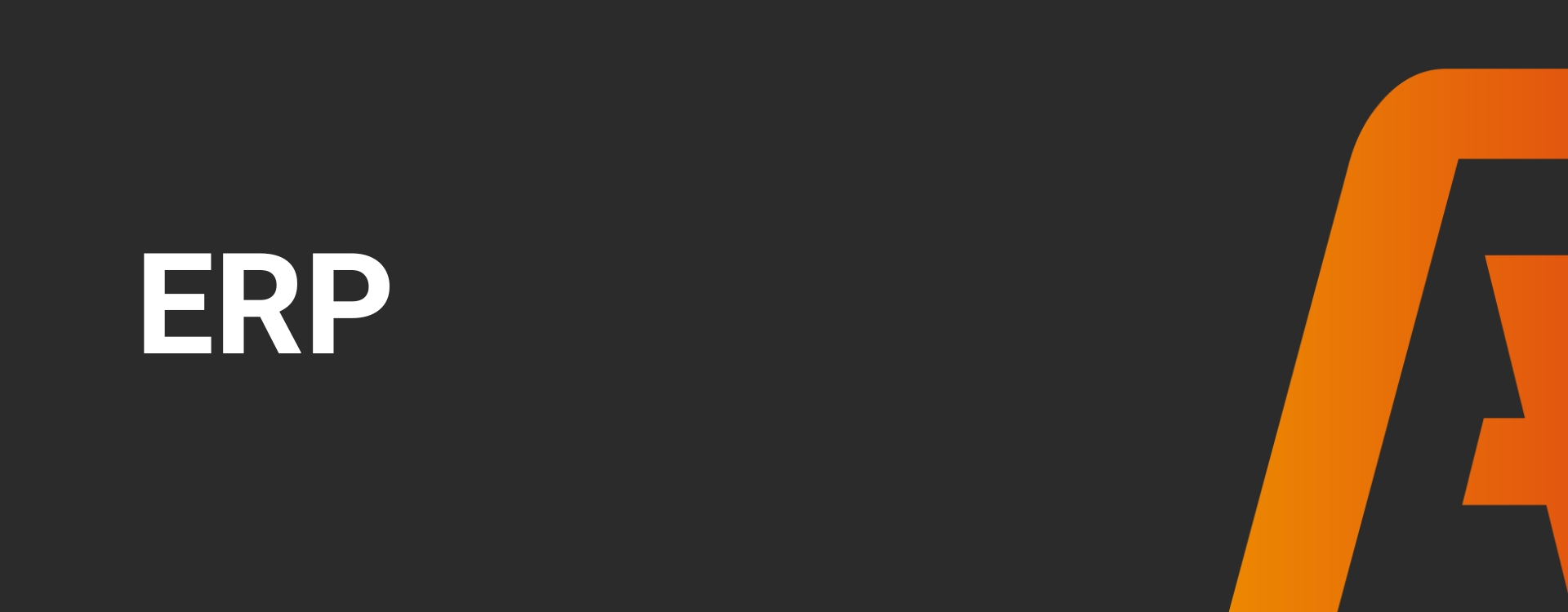» What is ERP?
» How does ERP work?
» What are the benefits of using an ERP system?
» Commonly used systems in the manufacturing industry
» What are the key functions of an ERP system?
» How does an ERP system help improve business processes?
» How do you choose the right system for your business?
» ERP and Ignition
» Explore Ignition
Other knowledge base articles

ERP
In this article
» What is ERP?
» How does ERP work?
» What are the benefits of using an ERP system?
» Commonly used systems in the manufacturing industry
» What are the key functions of an ERP system?
» How does an ERP system help improve business processes?
» How do you choose the right system for your business?
» ERP and Ignition
» Explore Ignition
What is ERP?
ERP stands for Enterprise Resource Planning. It is a software application for managing various business processes in an organization, such as finance, inventory management, procurement, manufacturing, sales, marketing, and human resources. Using an ERP system, an organization can centralize and automate all key business processes. It ensures optimization of business processes, making them more efficient and reliable.
Medium-sized and large organizations that require streamlined business processes often use ERP systems. An ERP system helps reduce manual tasks, improve data accuracy, and optimize business processes to increase productivity and reduce costs.
How does ERP work?
ERP systems work by integrating various business processes into one automated system. This includes capturing data and sharing information between different departments and processes.
The ERP system stores data in a central database and utilizes workflows and business rules to automate the flow of information. It enables tracking of business processes from start to finish, providing organizations with better insights into their business activities and how to further improve their performance.
ERP systems are also capable of providing real-time reporting and automating data analysis, enabling organizations to respond more quickly to market changes and make proactive decisions based on reliable data. Additionally, an ERP system aids in integrating data from external systems, such as customer relationship management (CRM) and supply chain management (SCM) systems.
What are the benefits of using an ERP system?
- Improved efficiency: Integrates various business processes into one automated system. This enables organizations to work more efficiently and increase productivity.
- Better data quality: Utilizes workflows and business rules to capture and share data between departments and processes. This improves the accuracy and reliability of data.
- Real-time reporting and analysis: Provides real-time reporting and data analysis. This allows organizations to respond more quickly to changes in the market and make proactive decisions based on reliable data.
- Enhanced collaboration: Promotes collaboration between departments and processes. This enables organizations to work faster and better meet customer needs.
- Cost savings:Helps to reduce costs by automating and streamlining business processes.
- Scalability: Is scalable and adaptable to the needs of organizations as they grow and change.
- Competitive advantage: Enables them to work more efficiently, make better decisions, and better meet customer needs.
Commonly used systems in the manufacturing industry
Many companies worldwide use ERP systems. There are numerous ERP systems on the market to choose from. Some of the most well-known in the manufacturing industry are:
- SAP
- Microsoft Dynamics 365
- Infor CloudSuite Industrial
- Epicor ERP
- SYSPRO
- Plex
- Sage X3
- QAD
- NetSuite
What are the key functions of an ERP system?
ERP systems have various functions and modules, depending on the specific needs of an organization. Some of the key functions included in most ERP systems are:
- Financial management: Managing accounting activities such as financial statement preparation, payment and invoicing management, and budget management.
- Supply chain management: Managing the flow of goods from procurement to customer delivery, including functions such as purchasing, inventory management, production planning, and logistics.
- Human Resource Management: Managing employee data, payroll administration, performance management, training and development, and workforce planning.
- Customer Relationship Management: Managing customer data and interactions, such as sales and marketing, customer service, complaint management, and order processing.
- Project management: Managing projects from start to finish, including planning, resource management, budget management, and project reporting.
- Business Intelligence: Collecting, analyzing, and reporting data on business performance to assist in making better decisions based on real-time data.
By integrating these functions, ERP systems improve the efficiency and productivity of an organization by facilitating data exchange between different departments and streamlining overall business processes.
How does an ERP system help improve business processes?
An ERP system integrates all business processes and data into one system. This provides a central storage of data and makes it easy to find and share information between different departments.
The system can be programmed to automatically perform certain tasks, improving the efficiency of business processes. This can be applied, for example, to processing orders, invoicing, and accounting.
ERP provides real-time reporting on all aspects of the business, including finance, inventory management, and sales data. This gives management a better overview of business performance and makes it easier to make decisions based on current data.
It also helps standardize processes across the entire company, ensuring consistency and improving work quality. Additionally, using the system helps minimize errors and reduce waste.
Furthermore, the system helps improve collaboration between different departments within the company. By sharing information and centralizing processes, departments are able to collaborate better and make decisions more quickly.
How do you choose the right system for your business?
Choosing the right ERP system for your business can be challenging. Here are some factors to consider when comparing various systems:
- First, determine your company’s objectives and the specific needs that an ERP system must fulfill. Look for a system that meets these requirements and select a vendor with experience in your industry.
- Consider the future of your business and choose a system that offers the ability to grow with your company. Ensure that the system is scalable and has enough features and modules to meet your future needs.
- Choose a system that is easy to use and does not require extensive training for your employees. An intuitive design and clear interface are important to facilitate system adoption.
- Make sure to consider the total cost of ownership, including license fees, implementation costs, maintenance costs, and upgrades.
- Select an ERP vendor that provides good support during implementation and afterward, and offers training to help your employees effectively use the system.
- Ensure that the ERP system you choose integrates well with other software applications your company uses, such as CRM systems, e-commerce platforms, and production applications.
ERP and Ignition
ERP systems and Ignition are complementary in industrial automation. An ERP system focuses on managing business processes such as finance, procurement, inventory management, and sales. Ignition, on the other hand, focuses on integrating and automating industrial processes and presenting real-time data to operators and management.
By integrating ERP and Ignition systems, a company gains a comprehensive overview of both business and industrial processes. This leads to better decision-making, faster responses to market changes, and a reduction in human errors.
For example, the use of Ignition helps collect data on machine performance and production processes, while the ERP system uses this data to provide real-time insights into factory performance, production planning, and inventory management.
Essentially, integrating ERP and Ignition systems improves the overall efficiency of a company by enabling the merging and analysis of data from various sources and increasing productivity through automation and real-time data.
Discover Ignition
your way
Start building
For developers
Get started with your own Ignition applications right away.
- Download and install Ignition easily and quickly.
- Explore all features.
- Connect unlimited tags, PLCs, databases, and devices.
Discover how Ignition solves your technical challenges without limitations.
See Ignition in action
For managers
Explore Ignition without any technical knowledge in the demo environment.
- No installation required.
- See how Ignition automates and visualizes processes.
- Adjust live values and see instant results.
Experience real-time automation and discover what it can offer your business.
Want to really know what Ignition can do for you?
Let us come to you for a free demo.
- Meet with our experts and ask all your questions.
- Get personalized advice.
- See how Ignition can optimize your processes.
The perfect opportunity to collaborate with specialists and see exactly how Ignition can help you achieve your business goals.
Start building your own application now!

Discover how Ignition can improve your processes!
Want to see how Ignition automates and visualizes processes without any technical knowledge? Fill out the form and gain immediate access to the demo environment, where you can experience Ignition live.

Schedule a no-obligation demo with our experts!
Want to learn more about how Ignition can optimize your processes? Request a personalized demo and discuss your business goals with our specialists. Fill out the form to book an appointment.

